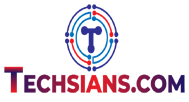Healthcare is an industry where precision and compliance with regulations are not just recommended – they are non-negotiable. Navigating the intricate web of healthcare regulations and maintaining compliance is a task that healthcare organizations face daily.
The healthcare sector is renowned for its labyrinthine network of regulations, standards, and guidelines. These rules encompass a broad spectrum, from patient data protection under HIPAA to quality standards defined by regulatory bodies like the FDA and European Medicines Agency. Compliance requires healthcare organizations to meticulously adhere to an array of requirements, all of which are aimed at safeguarding patient welfare, ensuring data security, and maintaining the highest standards of care. The complexity arises from:
Ever-Changing Landscape: Healthcare regulations are in a constant state of flux, evolving in response to medical advances, technological breakthroughs, and changes in the healthcare environment. This dynamic nature demands continuous vigilance.
Multifaceted Oversight: Different countries and regions often have their own regulatory authorities and compliance criteria. For instance, in the United States, healthcare providers must navigate a maze of federal, state, and industry-specific regulations.
In the face of these complex and evolving regulations, DevOps automation offers a beacon of hope. It’s not just about streamlining operations; it’s about ensuring that healthcare organizations remain compliant. DevOps automation provides:
Consistency and Accuracy: Automation ensures that each step in the development and deployment process complies with regulations, reducing the potential for manual errors.
Real-Time Monitoring: Automation facilitates ongoing monitoring, enabling early detection of compliance issues and proactive intervention. Also healthcare regulations play a crucial role in ensuring patient safety and data security, prompting healthcare organizations to implement robust automation solutions like the PRTG OPC UA server to streamline compliance processes.
Efficient Remediation: In case of compliance violations, automation can swiftly remediate issues, reducing potential risks and ensuring adherence to regulations.
Understanding Healthcare Regulations
Some of the major healthcare regulations and standards include:
HIPAA (Health Insurance Portability and Accountability Act): HIPAA is a cornerstone regulation in the United States that governs the privacy and security of patient health information. It sets stringent rules for the handling and disclosure of protected health information (PHI) and requires healthcare organizations to safeguard patient data.
GDPR (General Data Protection Regulation): GDPR is a European Union regulation that has a global impact. It focuses on data protection and privacy and affects any organization that handles the personal data of EU citizens, including healthcare providers. Compliance with GDPR is critical for protecting patient data.
FDA Regulations: The U.S. Food and Drug Administration (FDA) imposes regulations on the development, manufacturing, and distribution of medical devices and pharmaceuticals. These regulations ensure that products are safe and effective for patients.
CMS Regulations (Centers for Medicare & Medicaid Services): CMS regulations govern healthcare reimbursement and payment policies in the United States. Compliance with these regulations is crucial for healthcare providers to receive reimbursement for services provided to Medicare and Medicaid beneficiaries.
JCAHO (Joint Commission on Accreditation of Healthcare Organizations): JCAHO sets quality and patient safety standards for healthcare organizations and evaluates their compliance. Achieving accreditation from JCAHO is a mark of excellence in healthcare.
The dynamic nature of healthcare regulations presents an ongoing challenge for healthcare organizations. Staying up-to-date with regulatory changes, implementing compliant practices, and ensuring that they are followed throughout the organization requires a dedicated and proactive approach. In the sections that follow, we will explore how DevOps automation can assist healthcare organizations in navigating these complexities and ensuring continuous compliance.
How DevOps Practices Align with Healthcare Compliance Needs
DevOps has the potential to streamline compliance processes in healthcare in several ways:
Automation of Compliance Checks: DevOps automation can be utilized to automate routine compliance checks, ensuring that healthcare organizations continually meet regulatory requirements without manual intervention.
Audit Trail Generation: Through automation, DevOps creates detailed audit trails, making it easy to trace actions, changes, and access to patient data. These audit trails are invaluable for demonstrating compliance to auditors.
Security Enhancements: DevOps practices often include robust security measures, helping healthcare organizations protect patient data and ensure compliance with data protection regulations.
Rapid Response to Regulatory Changes: As regulations evolve, DevOps can quickly adapt to the changing compliance landscape by automating updates and ensuring that healthcare organizations remain in compliance with the latest requirements.
The integration of DevOps in healthcare compliance not only reduces the burden of compliance management but also minimizes risks, ensuring that patient data remains secure and that healthcare organizations operate within the bounds of the law.
The Benefits of DevOps Automation for Healthcare Compliance
DevOps automation offers a multitude of benefits for healthcare compliance, ensuring that healthcare organizations can navigate the complex regulatory landscape with precision and efficiency. Here are the key advantages:
Consistency and Repeatability in Compliance Processes
One of the primary benefits of DevOps automation is the assurance of consistency and repeatability in compliance processes. Automation ensures that each step in the software development and deployment process adheres to compliance standards, reducing the potential for manual errors and variations. In healthcare, where precision and reliability are paramount, this level of consistency is invaluable. Whether it’s the management of patient data or adherence to regulatory guidelines, DevOps automation guarantees that compliance procedures are executed uniformly across the organization.
Real-Time Monitoring and Early Detection of Compliance Issues
DevOps includes real-time monitoring and alerting systems, which are invaluable for the early detection of compliance issues. By continuously monitoring software, systems, and user activities, healthcare organizations can quickly identify deviations from compliance standards or potential violations. These early warnings empower healthcare professionals to take immediate action, preventing compliance breaches and safeguarding patient data. With DevOps automation, healthcare organizations can proactively address issues before they escalate, thereby reducing the risk of non-compliance.
Efficient Remediation of Compliance Violations
In the unfortunate event of a compliance violation, DevOps automation excels in the efficient remediation of issues. Rather than relying on manual interventions that can be time-consuming and prone to errors, automation can swiftly rectify compliance breaches. This rapid response minimizes potential risks and liabilities for healthcare organizations. By automatically implementing corrective measures, DevOps automation ensures that healthcare operations remain aligned with regulatory requirements, even in the face of unexpected compliance challenges.
Enhanced Audit Trails for Compliance Reporting
DevOps automation generates enhanced audit trails that serve as a comprehensive record of activities, changes, and access to critical healthcare systems and data. These audit trails are instrumental for compliance reporting, audits, and investigations. They provide a clear and transparent history of actions taken, which is invaluable when demonstrating compliance to regulatory bodies or during internal reviews. The detailed audit trails produced by DevOps automation enable healthcare organizations to readily track compliance-related activities, ensuring accountability and transparency throughout the compliance journey.
The benefits of DevOps automation in healthcare compliance go beyond mere operational efficiency; they are crucial for safeguarding patient data, maintaining regulatory adherence, and ultimately upholding the highest standards of care.
Conclusion
As the healthcare industry continues to evolve and regulations become increasingly intricate, the adoption of DevOps practices is more than just a choice; it’s a strategic imperative. DevOps is a guiding light that not only streamlines healthcare operations but also ensures that healthcare organizations operate within the bounds of the law and with unwavering commitment to patient well-being.
In the journey toward DevOps adoption in healthcare, Gart stands ready as your ally, providing the tools, guidance, and expertise needed to navigate this transformation successfully. Together, we can embark on a path that leads to more efficient, compliant, and patient-centric healthcare operations. With DevOps and Gart by your side, the future of healthcare compliance is not just a challenge to be met; it’s a promise of excellence in patient care and well-being.

